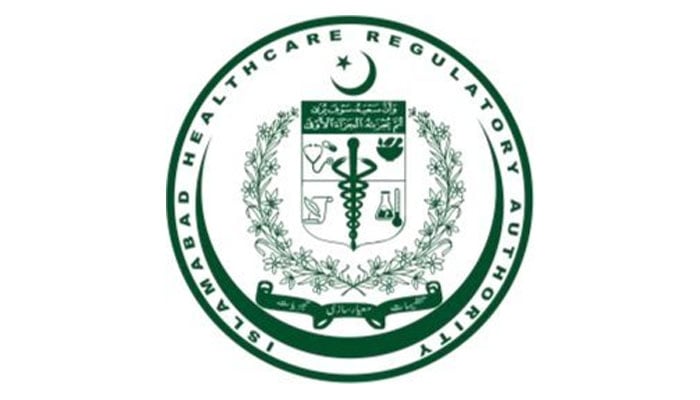Pakistan Psychiatric Society: Crackdown on unregulated mental health centres demanded
Islamabad: Sympathizing with the family of Noor Mukaddam, whose gruesome murder on Eid day will continue haunt every Pakistani for years, the Pakistan Psychiatric Society (PPS) has invited the government’s attention to the mushroom growth of unregulated mental health centres of the kind where Noor’s alleged murderer Zahir Jaffer had reportedly received his ‘training’ and had even worked as a ‘counselor,’ treating individuals and conducting sessions in educational institutions.
“The critical shortage of qualified mental health providers in Pakistan, including psychiatrists, has not only deprived our population of quality, evidence-based mental health services but has also allowed the mushroom growth of unsupervised centers all over the country. These centers are preying on the unsuspecting public of Pakistan, charging huge sums of money for substandard, sometimes dangerous, services without any oversight or any recourse available to patients and families harmed by them,” the PPS has flagged in a statement issued here on Friday.
It takes four years of training for a psychologist to be established as a clinician. Dangerous abusers are, however, openly being inducted in programmes where they taught to become counsellors without holding a valid license; they are free to exploit and abuse children and vulnerable men and women alike. Ironically, these activities are flourishing right under the eyes of the Islamabad Health Regulatory Authority (IHRA) which has been established to “improve the quality, efficiency and safety of healthcare service delivery by adopting evidence-based regulatory standards for registration and licensing of healthcare establishments.”
Like any other government entity, the IHRA has failed to curb quackery or pursue crackdown on illegal mental health centres operating in the capital. There are 30 such centres in Islamabad alone. Interestingly, the top story on the IHRA website refers to inspections of healthcare establishments of ICT, wherein a reference has been made to reports about substandard treatment centres for drug addiction operating in ICT area. “IHRA is likely to conduct raids at these premises in company with local police in the very near future,” the website informs. The use of terms ‘likely’ and ‘in the very near future’ adequately betray how serious IHRA is about fulfilling the mandate for which it was established.
Meanwhile, PPS—the only national organization of psychiatrists in Pakistan—has raised a couple of points for the consumption of the public, the law enforcement personnel, policy makers, legislators, and key members of the civil society and the armed forces.
Firstly, referring to media reports about the alleged murderer Zahir Jaffer having a history of substance abuse and the possibility of him having suffered from mental health problems, PPS believes “that the alleged murderer’s mental health history should not be presented as a ‘cause’ of the murder. This can add to the already enormous stigma faced by patients with mental illness and their families in Pakistan. People with mental health problems (including those who commit crimes) need appropriate assessment by qualified professionals and, if needed, treatment and rehabilitation.”
PPS has pointed out that “the vast majority of people with mental health issues do NOT commit crimes (including violent crimes). Multiple international research studies have documented that the rate of crimes committed by people with mental health problems are about the same as that of the general population (with some exceptions). It, is therefore essential that the alleged murderer’s mental health history is not presented as cause of the murder.”
Secondly, PPS has urged the federal and provincial governments to direct all media (including print, broadcast and digital media) through their regulatory bodies such as PEMRA to avoid sensationalizing this tragic incident. “Such sensational and irresponsible reporting can lead to ‘secondary’ trauma for viewers and worsen existing mental health problems for those already suffering,” it believes.
Thirdly, PPS has recommended that all provincial governments direct their respective media departments to start airing promotional messages that destigmatize mental illness and advise anyone suffering from mental or emotional symptoms to seek help at a nearby government facility or Department of Psychiatry. These are located in all major cities and are affiliated to medical colleges and universities. Reliable, ethical, qualified professionals including psychiatrists and psychologists are available around the clock to help. Virtual/telemedicine services are also available for those not able to visit in person.”
The PPS has offered to assist the federal and provincial governments to develop media campaigns to support the mental health of the people of Pakistan. “While the loss of any life is tragic, when the loss happens in such brutal circumstances, the mental health impact on the family of the deceased, friends, well-wishers, and the community at large is much greater,” it states.
The PPS has also welcomed the government’s initiative to launch the Mental Health and Psychosocial Support Programme (MHPSS), which has been a longstanding demand of PPS and mental health advocacy groups all over the country. In conclusion, it is also critically important for the Pakistan Medical Commission to establish guidelines for licensing of mental health professionals in a bid to curb the harm being inflicted on half-baked counselors who are out to fleece the public.
-
 Brad Pitt Feeling Down In The Dumps After Kids' Snubs As Pals Continue To Paint Angelina Jolie A Villain
Brad Pitt Feeling Down In The Dumps After Kids' Snubs As Pals Continue To Paint Angelina Jolie A Villain -
 Ex-PM Speaks Out On Andrew Mountbatten-Windsor In Newspaper Column
Ex-PM Speaks Out On Andrew Mountbatten-Windsor In Newspaper Column -
 Eric Dane Remembered In Glowing Tribute By Trans Activist In 'Grey's Anatomy'
Eric Dane Remembered In Glowing Tribute By Trans Activist In 'Grey's Anatomy' -
 Zach Braff, Sarah Chalke Explain J.D. And Elliot Twist In 'Scrubs' Revival
Zach Braff, Sarah Chalke Explain J.D. And Elliot Twist In 'Scrubs' Revival -
 Jim Carrey's Death To Body Double: Comedian's Latest Appearance Sparks Conspiracy Theories
Jim Carrey's Death To Body Double: Comedian's Latest Appearance Sparks Conspiracy Theories -
 Aespa's Ningning Steals Spotlight With Hilarious Viral Video From Milan Fashion Week
Aespa's Ningning Steals Spotlight With Hilarious Viral Video From Milan Fashion Week -
 Should Benedict Be Forgiven For Mistress Question? 'Bridgerton' Star Yerin Ha Reveals
Should Benedict Be Forgiven For Mistress Question? 'Bridgerton' Star Yerin Ha Reveals -
 John F. Kennedy Jr. Wife Carolyn Bessette's Last Minute Bridal Crisis Revealed
John F. Kennedy Jr. Wife Carolyn Bessette's Last Minute Bridal Crisis Revealed -
 Mary Cosby Remembers Son Robert Cosby Jr. After His Tragic Death
Mary Cosby Remembers Son Robert Cosby Jr. After His Tragic Death -
 Prince Harry, Meghan Markle Face 'largely Unfair' Criticism After Jordan Trip
Prince Harry, Meghan Markle Face 'largely Unfair' Criticism After Jordan Trip -
 Priscilla Presley Makes Sweet Confession About TV Role: 'I Lied'
Priscilla Presley Makes Sweet Confession About TV Role: 'I Lied' -
 Prince Harry Feels 'hurt' For Archie, Lilibet
Prince Harry Feels 'hurt' For Archie, Lilibet -
 Keith Urban, Nicole Kidman's Daughters Choose One Parent To Side With
Keith Urban, Nicole Kidman's Daughters Choose One Parent To Side With -
 Sarah Ferguson's Hidden Trait Exposed As Expert Dismantles Shadow Side To Her Personality
Sarah Ferguson's Hidden Trait Exposed As Expert Dismantles Shadow Side To Her Personality -
 Sarah Ferguson Backed By Powerful Friends Amid Epstein Fallout
Sarah Ferguson Backed By Powerful Friends Amid Epstein Fallout -
 PINK’s Latest Move Sparks Speculations About Replacing Major Celebrity On Show
PINK’s Latest Move Sparks Speculations About Replacing Major Celebrity On Show




